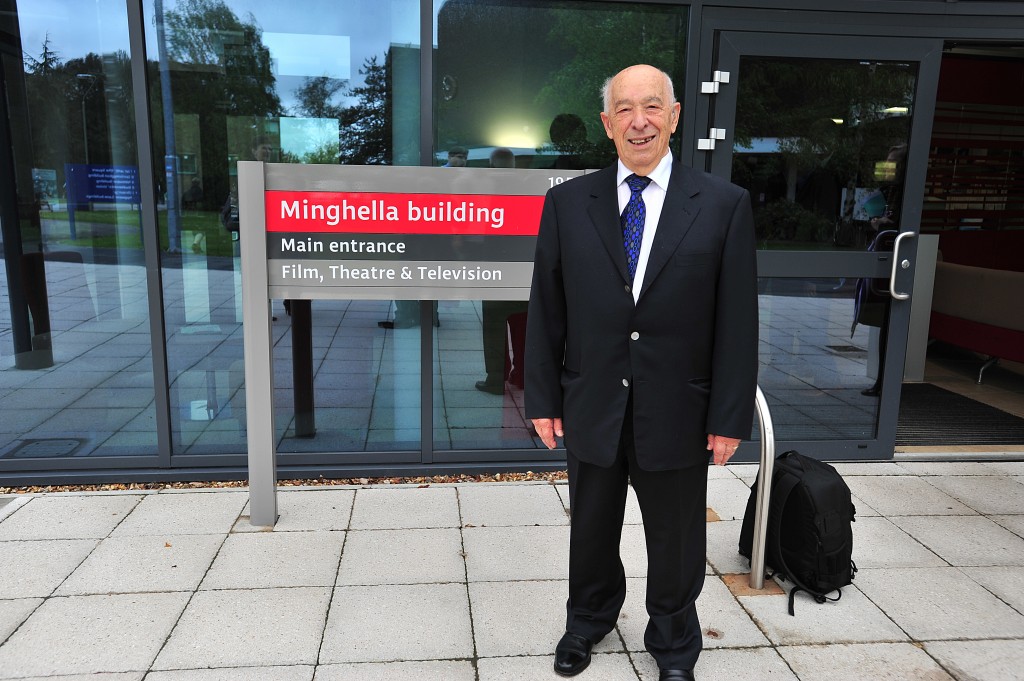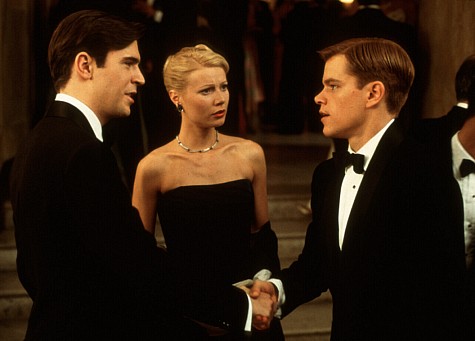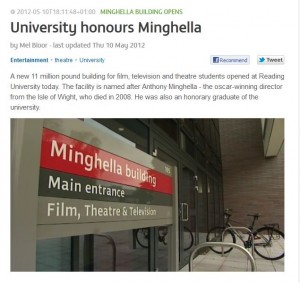18 June 2012
There’s a thing we say in our family: Just because….
It’s a something my brother Anthony used to say, when he was a boy. When in trouble, he would start to explain himself, “Just because I forgot my boots…” and burst, before he could say more, into tears of despair.
Our Dad thought it was hilarious, and it has since been adopted family-wide as shorthand for ‘sorry’. I forgot your birthday? Just because. Your present is late? Just because. It is, inevitably, a much deployed expression.
And today I deploy it myself, for having neglected to send my fabulous Dad anything for yesterday’s Father’s Day. Again.
Here he is (below) at the recent opening of Reading University’s Film TV and Theatre Building, named after Anthony. One can only imagine the pride and the pain of attending such an event; celebrating a son prematurely taken. Our Dad handles these things with dignity and, always, a joke.
He is responsible for many aspects of our family’s collective personality. We have inherited, extended, developed and downright copyrighted so many of his attributes. His pleasure in playing on words. His boyish, infectious humour. And we aspire to his unfailing, sentimental love; his willingness to question the status quo; his satisfaction in simple things – food, family, a pack of well-worn playing cards.
Whenever there was a gathering of the Minghella clan – there are a lot of us now (a plague of Minghellas? a rash? a canzona?) – Anthony used to turn to Dad, point to all the kids, partners and grandchildren, and say, proudly, “All this is your fault!”
Ah. It’s hard to imagine saying that nowadays. The family is incomplete. And that joke belonged to Anthony.
It brings a tear to the eye, but Dad has a line for crying too: “Why are you laughing on the wrong side of your face?” You’ll find that line all across Anthony’s work, and mine.
In a few days’ time, our wonderful Dad will be 91. I should send him something now.
Meanwhile, here’s to you, Dad. It IS all your fault, and I love you and thank you and – in case I do forget – just because.



